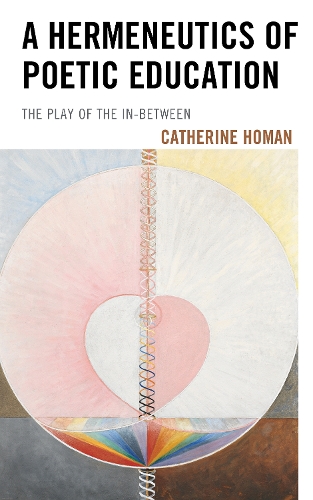
A Hermeneutics of Poetic Education: The Play of the In-Between
(Paperback)
Available Formats
Publishing Details
A Hermeneutics of Poetic Education: The Play of the In-Between
By (Author) Catherine Homan
Bloomsbury Publishing PLC
Lexington Books
5th April 2022
United States
Classifications
Professional and Scholarly
Non Fiction
Philosophy and theory of education
Literary studies: poetry and poets
370.1
Physical Properties
Paperback
218
Width 153mm, Height 220mm, Spine 17mm
331g
Description
A Hermeneutics of Poetic Education: The Play of the In-Between explores the ways in which both play and poetry orient us toward what surpasses us. Catherine Homan develops an original account of poetic education that builds on Friedrich Hlderlins idea of poetry as a teacher of humanity. Whereas aesthetic education emphasizes judgments of taste and rational autonomy, poetic education foregrounds self-formation and openness to the other. Critically engaging the works of Eugen Fink, Hans-Georg Gadamer, and Paul Celan, this book argues that poetry and play call for a particular stance in the world and with others. Open toward the infinite while simultaneously reaching toward its own finitude, the poetic work addresses us and invites our response. Poetry reveals the human condition as in-between and dialogical, even at the limits of language. Although many philosophers mistakenly view play as frivolous, Homan takes play seriously. Play--spontaneous and creative--resists mastery and instead requires an active attunement to the to-and-fro movement of the world, of others, and ourselves. A Hermeneutics of Poetic Education demonstrates that poetic education, as learning to listen, provides vital resources for responding to alterity in meaningful ways that resist totalization.
Reviews
Interpretation, play, and creativity are not simply behaviors, Homan (philosophy, Mount Mary Univ.) argues in this perceptive and trenchant new book, but ways of being in the world (p. 134). Tracing, engaging, and building on this ontological orientation in the works of many key German language poets and philosophersincluding Hlderlin, Kant, Schiller, Nietzsche, Heidegger, Celan, Fink, Gadamer, and othersthe author identifies a pervasive as if stance that marks many of their perspectives on language, education, and existence. Human existence is groundless yet finite and thus tragic. And language (while not merely a tool) is capable of enlarging understanding even though it always remains incomplete. The poetic, however, keeps these tensions alive and therefore offers the true promise of a liberatory and playful education. Homan underscores the seriousness of play as it provides the bridge that enables one to reclaim an original unity obscured by ubiquitous dualisms (e.g., subject/object, self/world, familiar/foreign, and so on). A concluding chapter responds to some critiques of hermeneutics and offers a justification of education as Bildung, which Homan regards as consistent with hermeneutics in that it is premised on the spontaneity and openness to what is other" (p. 166). This is exemplary and astute scholarship with a timely and timeless focus. Summing Up: Highly recommended. Upper-division undergraduates through faculty; general readers.
* Choice *"Catherine Homan makes a compelling case for poetic education, beginning with Hlderlins appeal to the creative arts in the nineteenth century. Weaving imaginatively different play traditions from the hermeneutic encounter with Gadamer and Fink to the social justice concerns of Gloria Anzalda, Mariana Ortega, and bell hooks, Homan brings an original perspective to philosophy of education, arguing for language to be attuned to dialogical interplay and affectively rooted in the world. With her focus on an ethics of vulnerability, drawing on Paul Celans poetry, her book serves as an important corrective to play narratives in the hermeneutic tradition that merely tarry with the aesthetic." -- Mechthild Nagel, SUNY Cortland
Author Bio
Catherine Homan is assistant professor of philosophy at Mount Mary University in Milwaukee.
